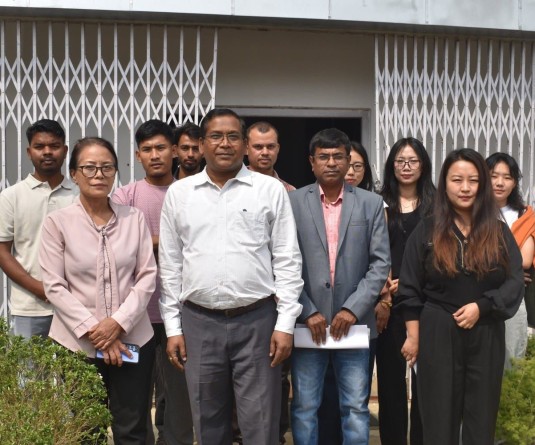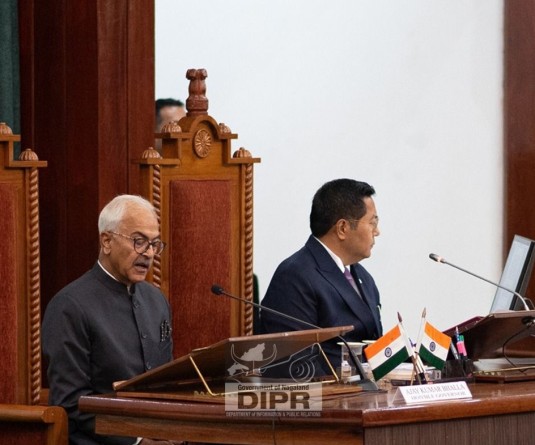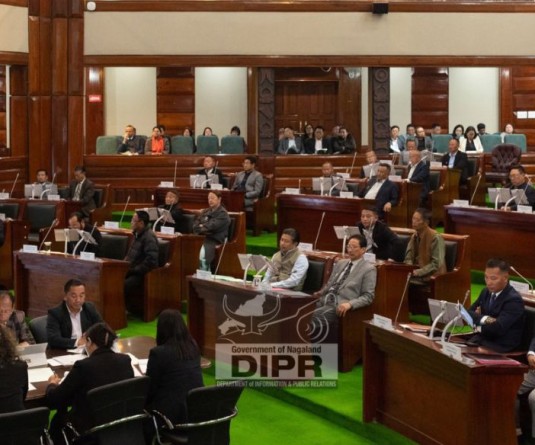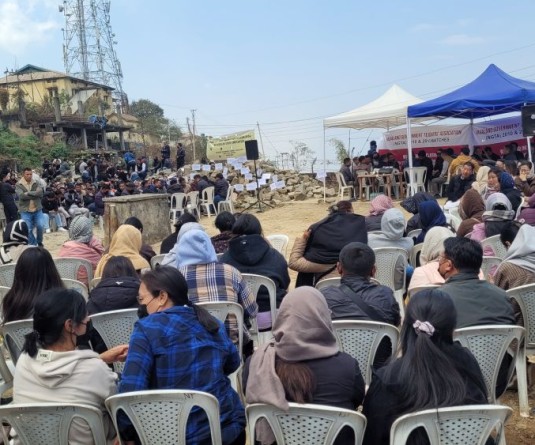Young Naga women and men are now more aware of their rights and responsibilities. They demand that their leaders should be accountable to the people and have asserted that the aspirations of future Naga generations should be embraced and reflected in policies. In this Associated Press file photo, Naga students in Delhi are seen participating in a peace rally. (File Photo)
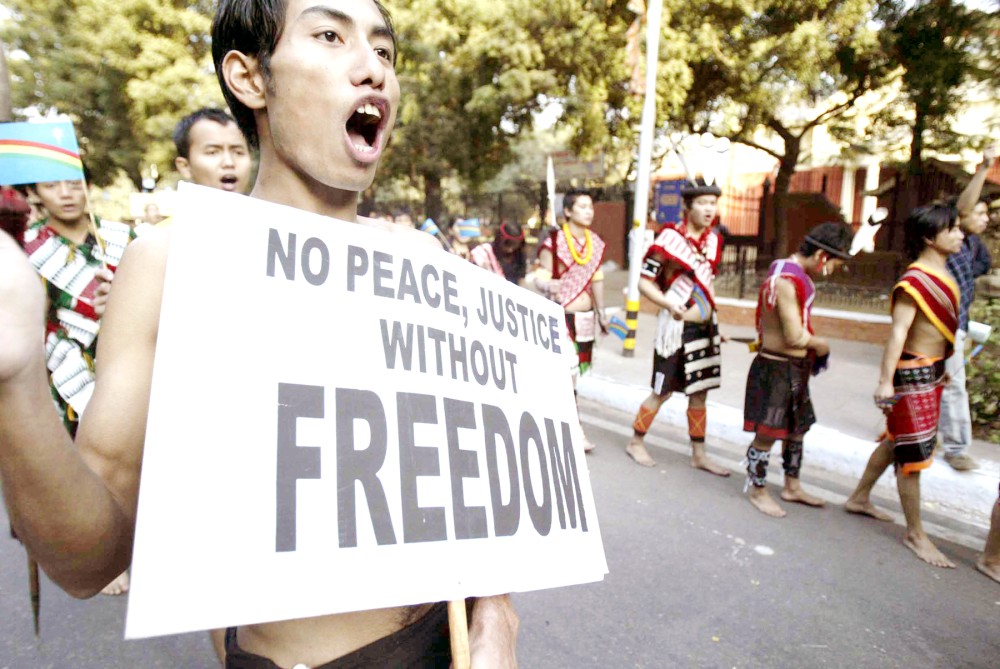
Renchano Humtsoe
Dimapur | March 3
The much hyped State Legislative Assembly election, which practically brought other aspects of life in Nagaland to a standstill, has finally ended. While the result is out with incumbent Naga People’s Front (NPF) winning an absolute majority in the 60-member Assembly, the next question for the new government to answer is what changes it will possibly bring to the public. The youth have a lot to ask from the government.
25-year-old Lily, who works in a bank says, “I wanted to work for the state government very much, but realized we have to buy it… I want the government to be corruption free, especially in the job recruitment process.” Expressing dismay over the lackadaisical attitude of the government, and its disregard for dignity of labour, she adds, “Most of them [government employees] hardly go to work.”
Speculations are already on as to what actions the government will take before it starts working for the people. As the norm of every new government in Nagaland goes, some people are already concerned about their jobs; about being transferred to ‘anywhere’ by the newly elected members in order to get back at those who supported parties apart from theirs.
There are murmurs about the multi crores that politicians spent during election, and how they will try to retrieve that money through their “good offices”. Some nonchalantly say, “It is going to be the same,” while the more indiscreet ones say, “They will start stealing for the next election.”
“I had a good laugh when Rio declared 2013 was the most peaceful election so far,” remarks Zanbeni, a teacher. “Was he sleeping ‘peacefully’ when lives were being taken, and guns were being pointed everywhere? It was an election won by public money and muscle power. The whole process was a complete mockery of democracy in itself.”
There is wide evidence of frustration, particularly among the young educated Nagas about the incompetence of the state government. People are frustrated about unemployment, corruption, bad roads, worse electricity, and worst governance, and are yearning for basic needs.
The popular demands of the people from the government are good roads, better road connectivity, water supply to every household, uninterrupted power supply for entire Nagaland, more employment opportunities for the educated youth, promotion of economic self-reliance by aiding self-help groups, be it in farming, cottage industries, or entrepreneurship, establishing more academic institutes, including engineering and medical colleges in the state.
“Government should not make money as an alternative, but opportunity. Power and money not as solution, but opportunities of training (vocational)…so we do not depend on Assam,” says Alemrenla, a theological student.
Presenting an economic dimension, Mhathung Ngullie, a Political Science student points out, “The government need not undertake trips to European countries, instead we can learn a lot from our immediate neighbor (referring to the agricultural output that generate major revenue in the state of Assam).” Stating that the state economy is more of a salary economy, where there is no or very little major private investments in small as well as large scale industries that might ease the problem of unemployment as well as generate revenues for new paths of economic developmental plans to take off, he stressed on the importance of agricultural sector and that the government should cash in on empowering farmers.
“There has been serious distortion of economic priorities and this can lead to misallocation of resources,” he adds talking about inefficient governance in the state. “Also there is no denying the fact that we live under a dark cloud of corrupt administrative machinery.”
The fact that the NPF led DAN government is set to rule the state for the third consecutive term has also become a matter of concern. The consequential fear of the possibility of Nagaland becoming an autocratic state looms large with the opposition Congress reduced to a mere minority, leaving less room for checks and balances.
Notwithstanding, the government needs to resolve the issues of the past before venturing out to tackle new issues, and in the face of mushrooming young, vocal, educated Nagas, the government would need to hold itself more accountable.


